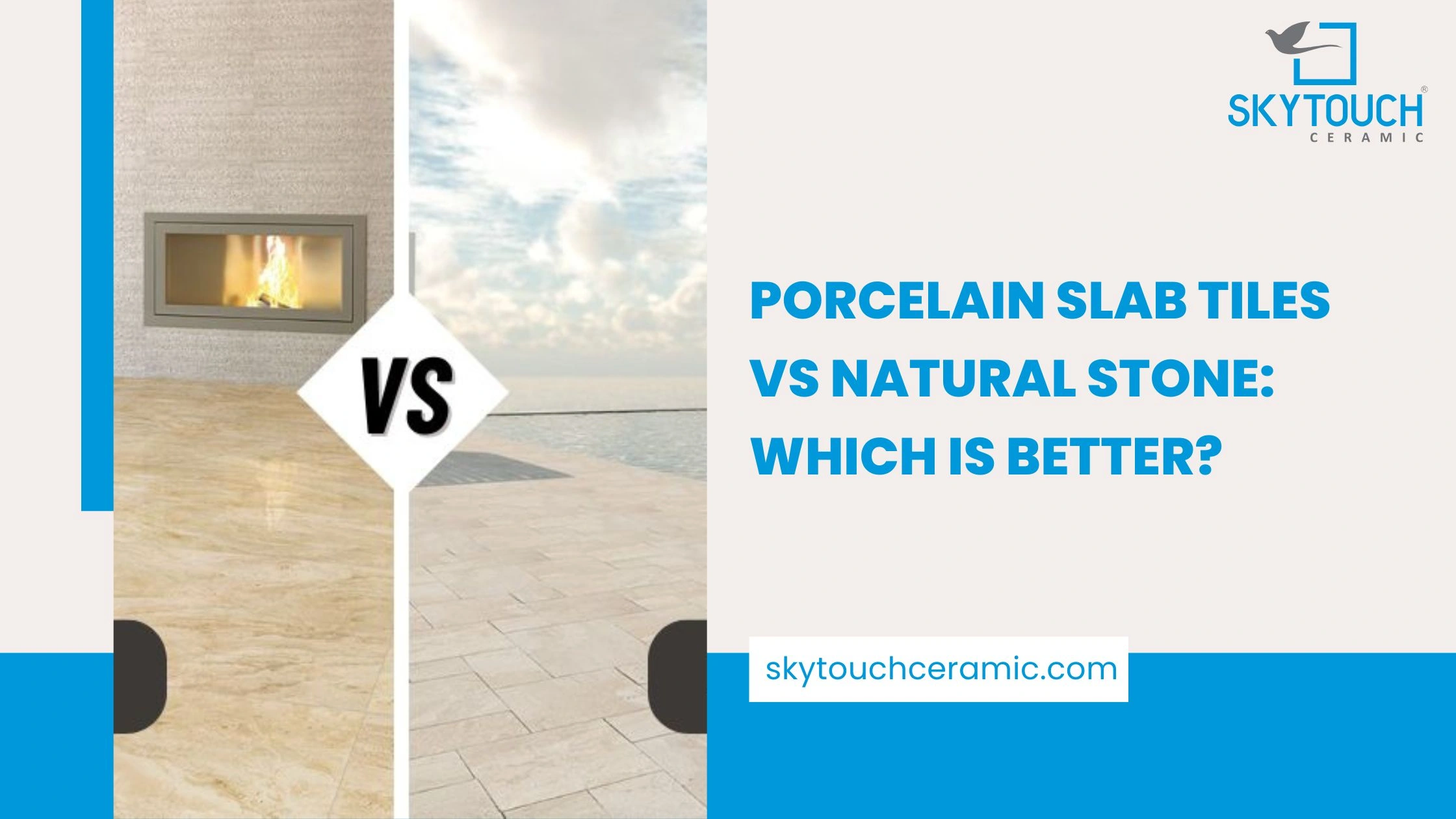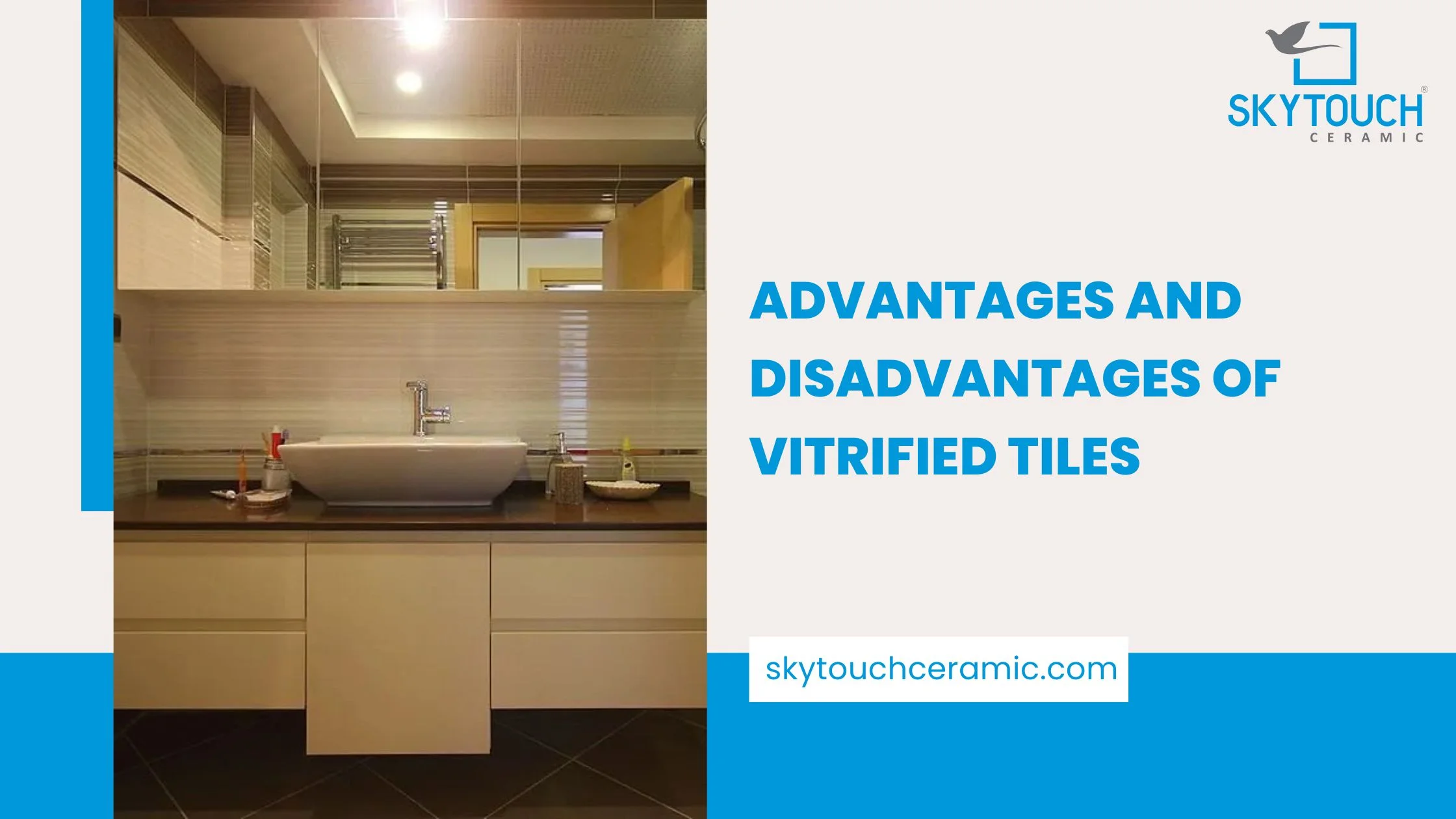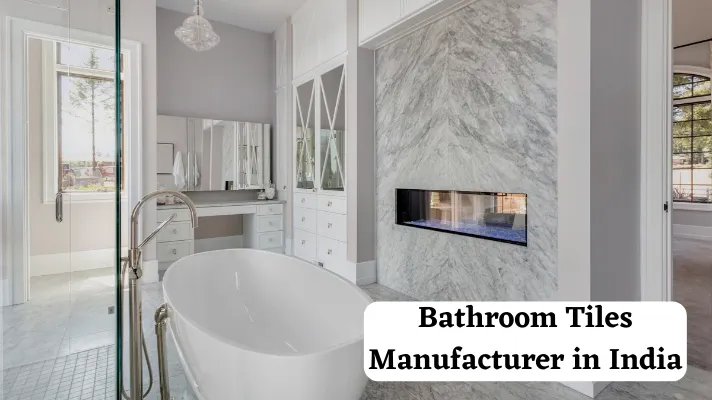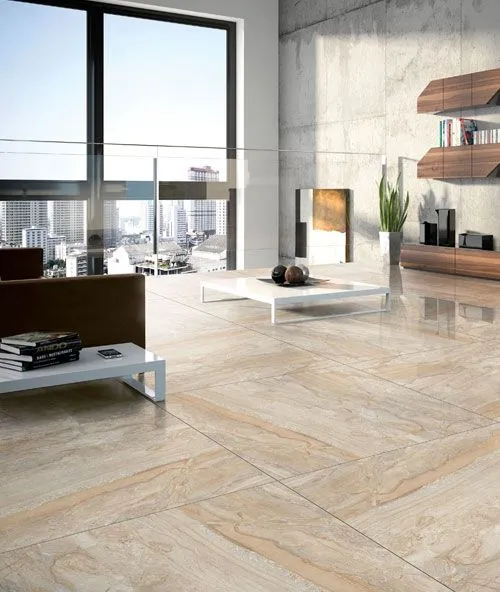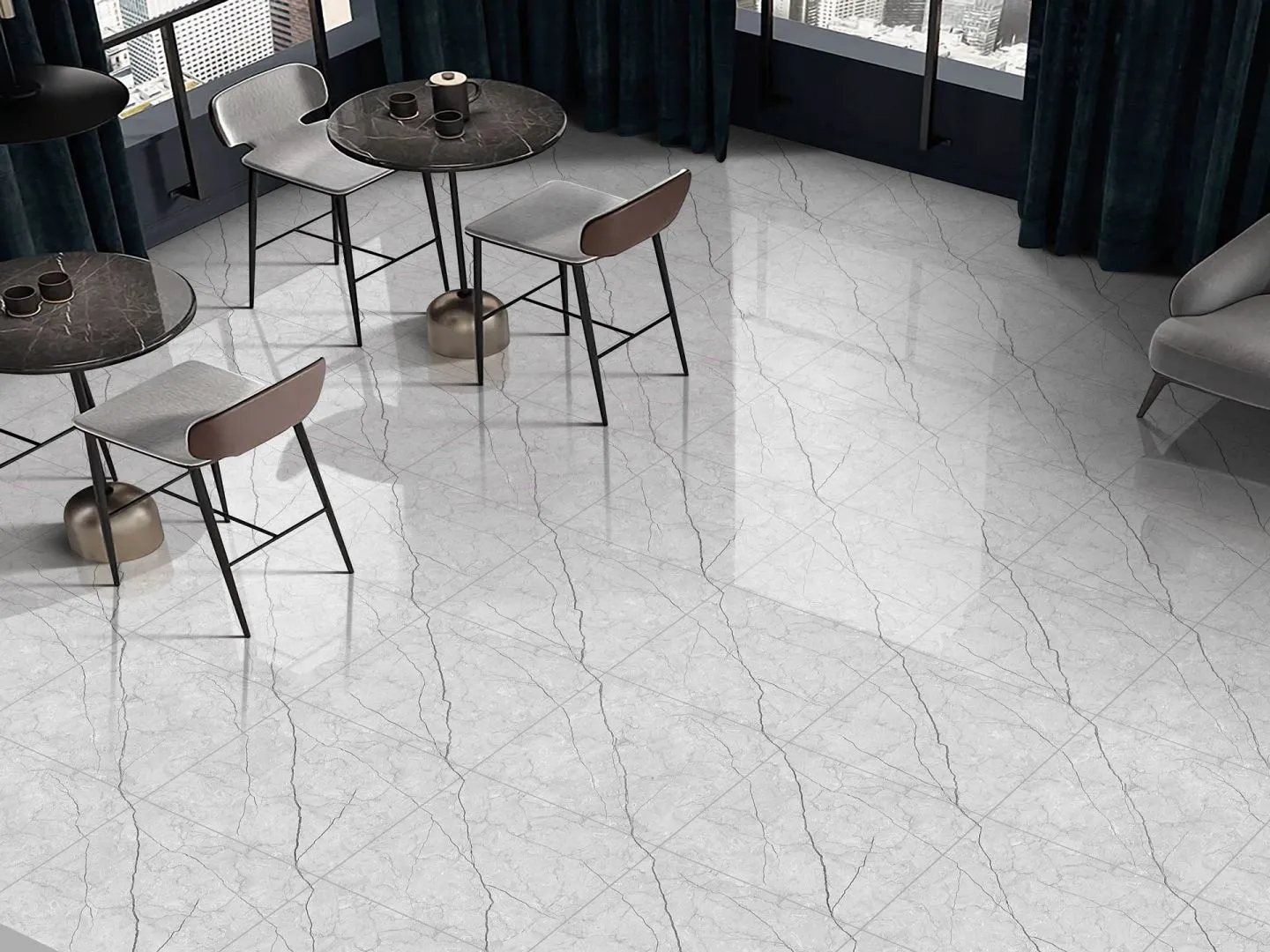Choosing the right material for your flooring, countertops, or walls can make a significant impact on your space’s aesthetics, durability, and maintenance. Two of the most popular options are porcelain slab tiles and natural stone. While both offer beauty and functionality, they have distinct differences that can influence your decision.
In this article, we are going to compare porcelain slab tiles and natural stone by durability, maintenance, cost and application.
What Are Porcelain Slab Tiles?
Porcelain slab tiles are large-format tiles made from refined clay and fired at high temperatures. The result of this process is a dense, non porous surface that is highly resistant to stains, wear and moisture.
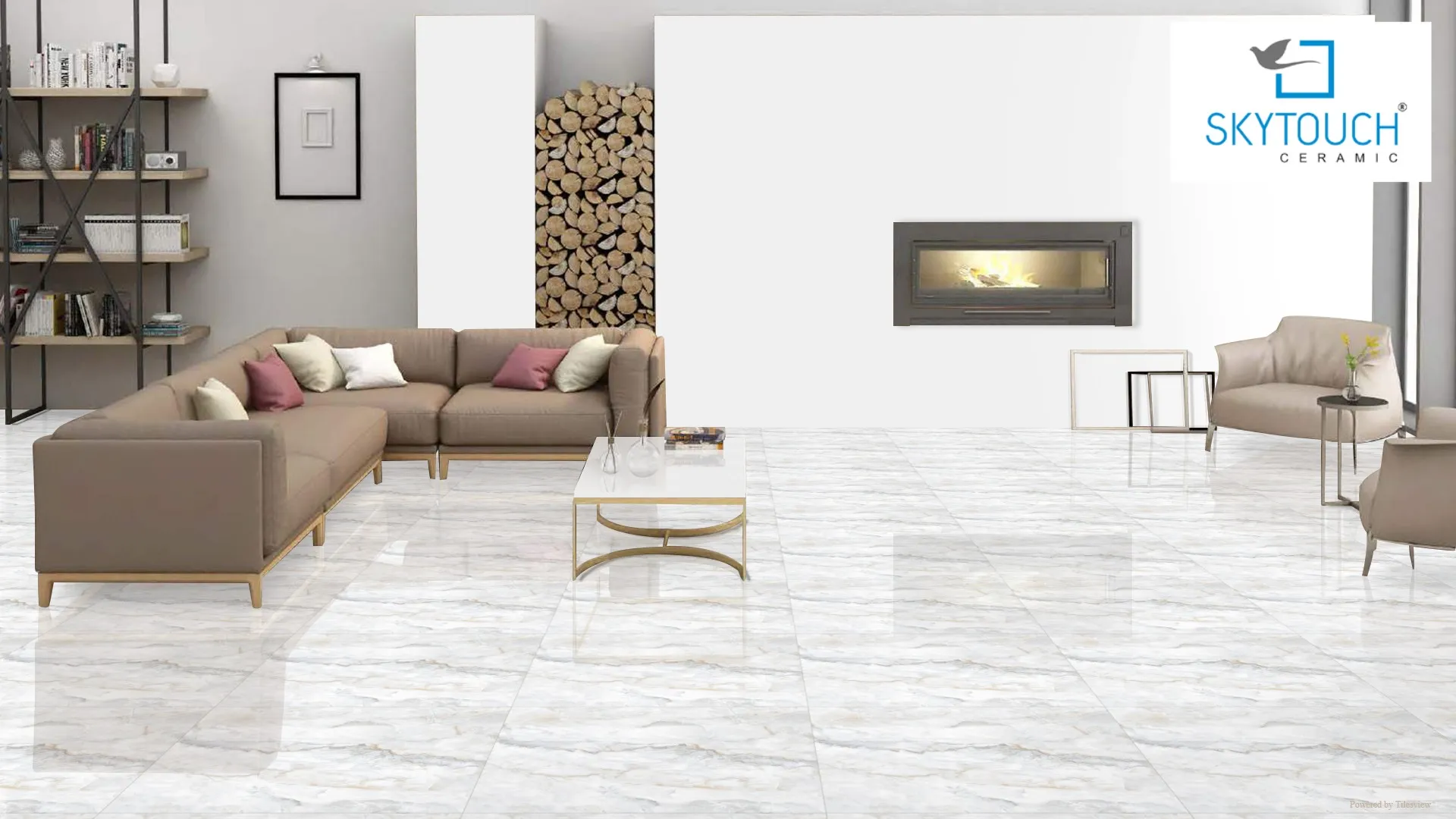
Key Features of Porcelain Slabs:
• Available in various sizes including large seamless slabs.
• Also, it can emulate natural materials like marble, wood, and concrete.
• They are highly resistant to water and stains because of their low porosity.
• Ideal applications for countertops, wall applications, and flooring.
What Is Natural Stone?
Natural stone is a quarried natural material available in a variety of forms including marble, granite, limestone, travertine, slate, etc. There are rich textures and the organic beauty of each stone is different.
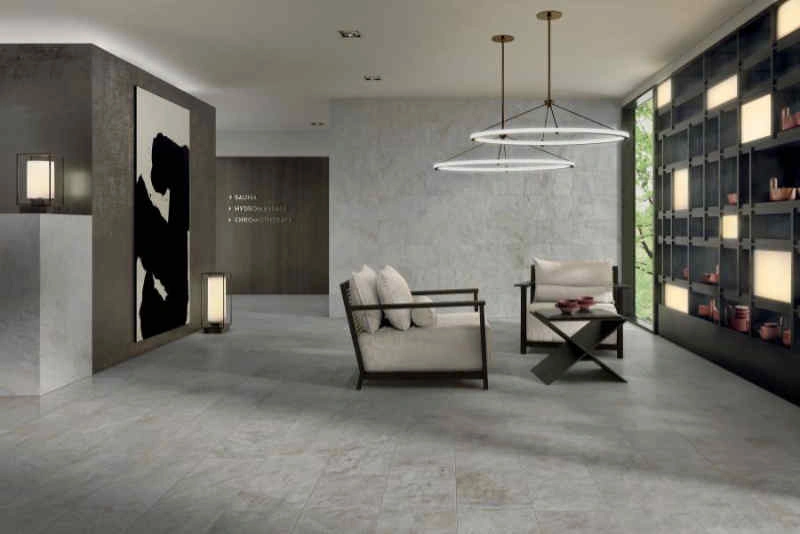
Key Features of Natural Stone:
• Each slab is one-of-a-kind with unique veining and color variations.
• Requires sealing to prevent stains and moisture absorption.
• Provides a luxurious and timeless aesthetic.
• Used for countertops, flooring, and feature walls.
Porcelain Slab Tiles vs. Natural Stone
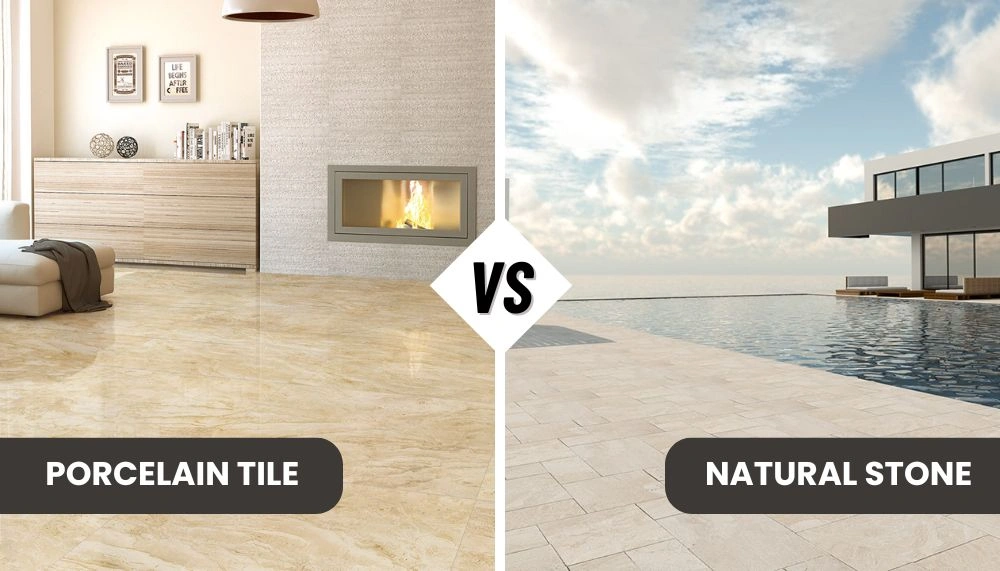
1. Durability & Strength
Porcelain Slab tiles: these are made at very high heat that makes them resistant to scratches, stains, and moisture. Since their non porous nature they are not susceptible to cracking or chipping the natural stone.
Natural stone: Natural stone such as marble, granite, is more susceptible to scratching, chipping and staining. For some stones, sealing is regularly needed to keep them intact and long lasting.
Winner: Porcelain slab tiles – They are very hard wearing against wear and tear making them perfect for high traffic areas.
2. Maintenance & Cleaning
Porcelain Slab Tiles: its non-porous surface, porcelain slabs will require low maintenance. They can be maintained beautifully by regular cleaning with water and mild detergents.
Natural Stone: There are many types of natural stone that are porous and need sealing to protect it against staining and from adsorption of moisture. It also requires some pH balanced cleaners to clean and avoid damaging the surface.
Winner: Porcelain slab tiles – They demand less upkeep and eliminate the need for sealing.
3. Aesthetic Appeal
Porcelain Tile Slabs: There are different color, pattern and finish, porcelain slabs that resemble the look of natural stone, wood or even concrete. However, they offer uniformity, favourable for the achievement of a smooth design.
Natural Stone: Natural patterns created by nature offer a unique and one-of-a-kind pattern on each slab. The truth of its material gives it timeless beauty and luxe.
Winner: Natural stone – The uniqueness of each slab enhances the elegance and character of a design.
4. Cost Considerations
Porcelain Slab Tiles: More affordable than many types of natural stone, porcelain provides a cost-effective solution without compromising on style and durability.
Natural Stone: Depending on the type (e.g., marble, granite, or travertine), natural stone can be significantly more expensive, especially when considering installation and long-term maintenance costs.
Winner: Porcelain slab tiles – They offer a luxurious look at a lower cost.
5. Installation Process
Porcelain Slab Tiles: Lightweight and easier to install compared to natural stone, porcelain Slab Tiles. Available in large sizes with fewer seams and grout lines.
Natural Stone: More heavy and more challenging to cut and install as compared to other installation materials. In some cases, this also requires stronger subflooring and added support.
Winner: Porcelain slab tiles – Simpler and faster installation process makes them more practical.
Applications of Porcelain Slab Tiles
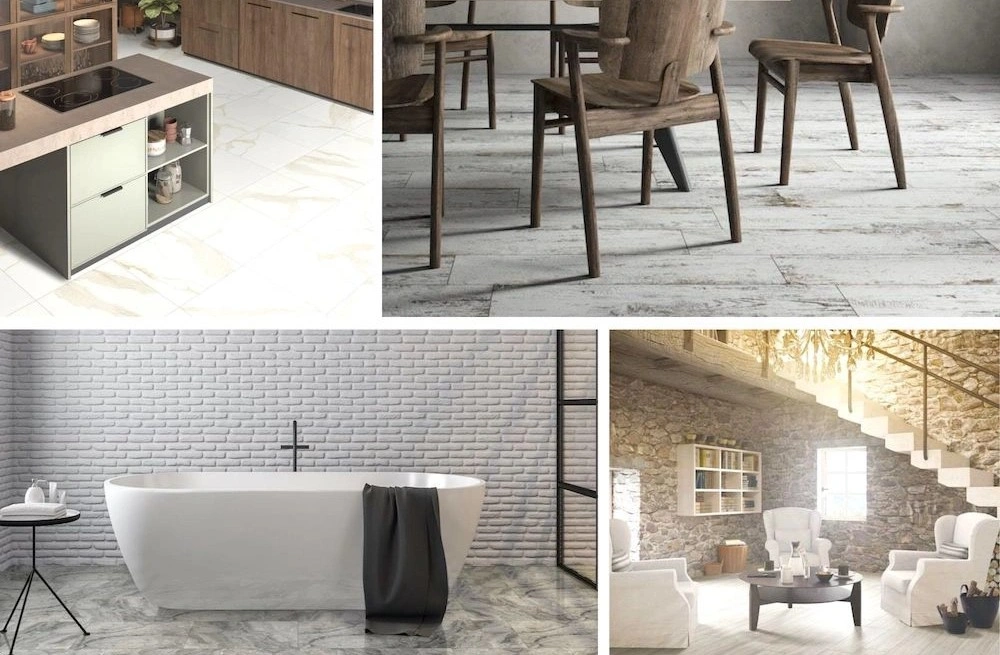
• Kitchen countertops and backsplashes: Stains, heat, and scratches Resistant.
• Bathroom walls and flooring: Suitable for wet areas as it is water resistant in nature.
• Living room and hallway floors: Durable, low maintenance, and ideal for busy zones.
• Outdoor patios and facades: UV-resistant and withstands extreme weather conditions.
• Commercial spaces: Used in hotels, malls, and offices due to their longevity and ease of cleaning.
Applications of Natural Stone

• Luxury kitchen countertops: Marble and granite offer premium aesthetics.
• Bathroom vanities and flooring: It gives the spa-like, and complements it with elegance.
• Fireplace surrounds: Adds a timeless and natural touch to living spaces.
• Exterior cladding and pathways: Common in upscale landscaping projects.
• Hotels and heritage buildings: Preferred for classic architectural designs.
Discover the Best Tile Collection
Final Verdict: Which One Wins?
Porcelain slab tiles and natural stone both offer some benefits but porcelain slab tiles comes out the winner in most modern applications. Properties such as durability, maintenance, cost, and sustainability make it a better performer than natural stone. Natural stone is a luxurious choice, but if you’re looking for a unique, high end aesthetic and don’t mind the maintenance, natural stone is a good
Best Choice Based on Application:
• For busy households and commercial spaces: Porcelain slab tiles
• For luxury designs and unique aesthetics: Natural stone
Generally, it's a matter of personal preference, budget, and what your project needs. Whatever one you choose, both materials will add elegance and functionality to your space! If you are looking for high quality porcelain slab tiles, explore Skytouch Ceramic and discover a range of innovative and stylish options for your next project!

